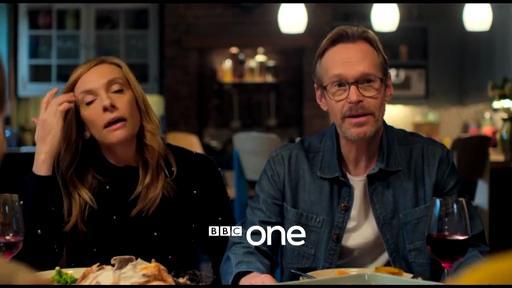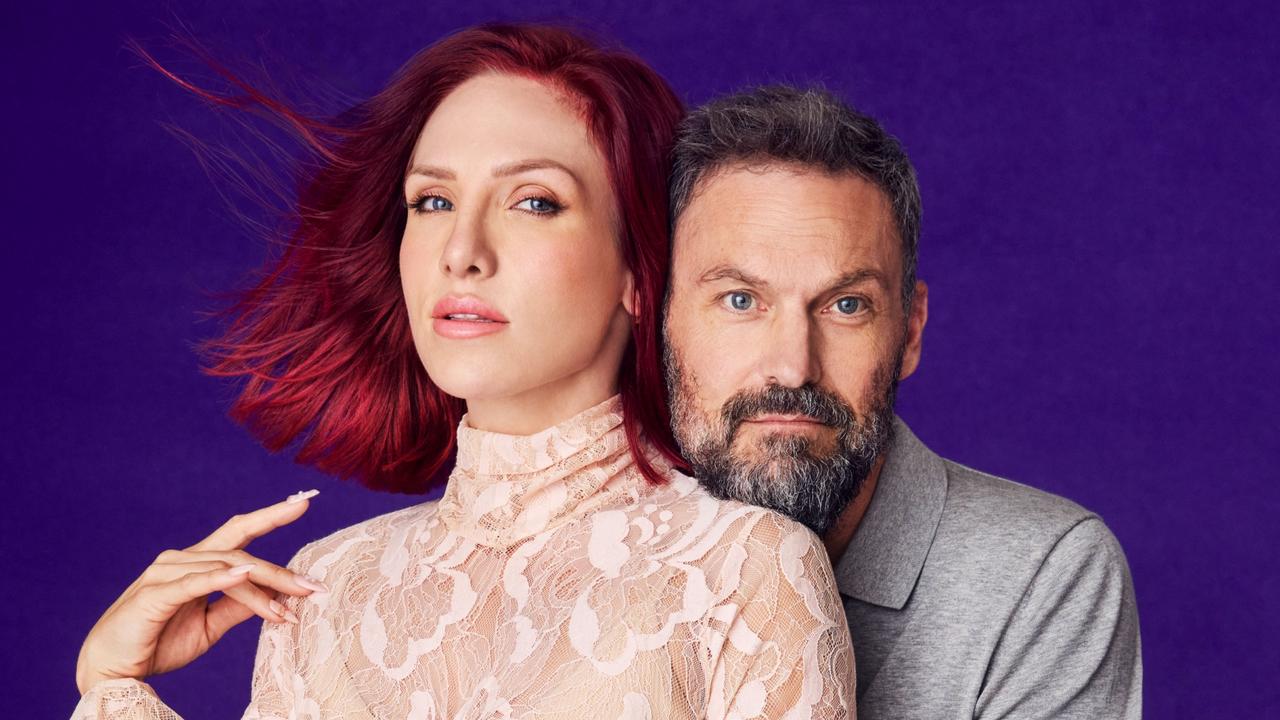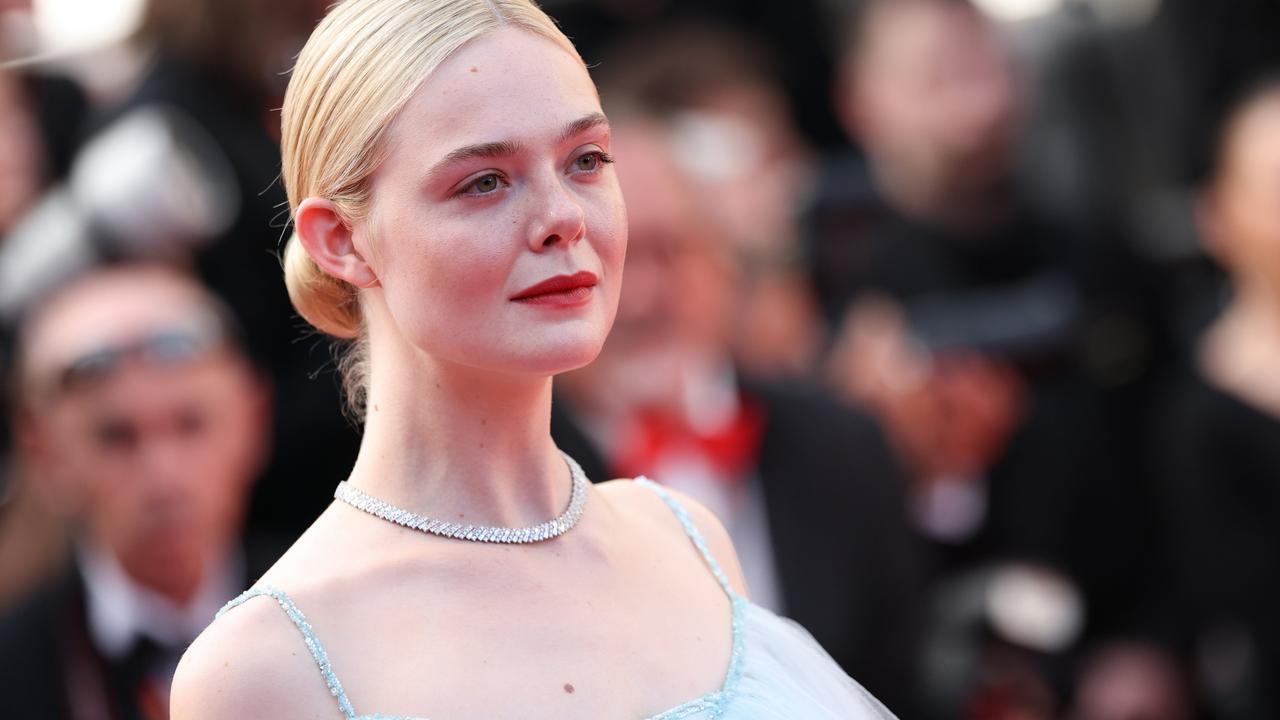Toni Collette: 50 is the new golden age for women in Hollywood
Muriel’s Wedding star Toni Collette reflects on 30 years in the spotlight, and how older women are hitting their stride in Hollywood.

Stellar
Don't miss out on the headlines from Stellar. Followed categories will be added to My News.
Since being catapulted to worldwide fame in 1994’s Muriel’s Wedding, Toni Collette has been something of a reluctant celebrity. It’s only now – nearly three decades later and looking ahead to her 50th birthday – that the Australian actor has grown more comfortable in her own skin and learnt to embrace the silver linings that come with her line of work. Far from growing anxious about this milestone, Collette tells Stellar she’s looking forward to what’s ahead – and feeling elated that her half-century coincides with older women being celebrated, not ignored.
You’re turning 50 later this year. How do you feel about that milestone?
Toni Collette: I found 40 psychologically difficult. For me, the past decade has been a treasure-trove of opportunities for learning life lessons, big and small. I finally feel like
I’m really at home in myself. So I’m excited and, apparently contrarily, rather comfortable about turning 50. I’m looking forward to it and all the opportunities and adventures to come.
There has been a tangible shift in the culture in that the most talked-about and successful female celebrities – like Jennifer Aniston, Nicole Kidman and Jennifer Lopez – are in their 50s, an age bracket that was long ignored. They’re being celebrated, they’re landing the best roles of their lives, and they’re more visible than ever. What do you make of this change?
TC: If a person doesn’t resist life’s challenges but rather sees them as an opportunity to learn and grow, then they just get better and better. Even when I was younger, I never understood the obsession with youth culture.
Surely people become more interesting with life experience and a bit of wisdom. Everything has changed and continues to change. We all need to be reflected in art and stories. We all need to see ourselves. Diversity and representation are absolute necessities. This is why a seemingly specific story can speak to everyone, because it’s universal in its themes. But don’t you think the more self-knowledge a person has, the more powerful they become?
And I’m not talking about power in the way it’s sold to us through a marketing lens, banging on and on about success and achievement. I’m talking about personal power – nurturing the inner world we all have access to but most try to ignore.
That, I believe, is why older female actors are soaring. As they grow to know themselves, they potentially also accept themselves. Then there’s nothing to hide, nothing to lose, no approval to seek – and everything to share as actors. I think what you’re talking about is audiences responding to that kind of energy.

You’ve spoken about how difficult it was to adjust to the glare of the spotlight after the success of Muriel’s Wedding. Has it gotten any easier?
TC: Much easier. Yep. I just don’t even encounter it unless I’m doing press; it’s not on my radar. I just live my life. And when it is in my face, I have more of a sense of gratitude for all the good my career has brought me. Just so many, many blessings.
Bruce Willis, your co-star in The Sixth Sense, recently announced his retirement from acting after being diagnosed with the degenerative condition aphasia. Have you kept in touch with him since you made that movie?
TC: I’m sorry to hear that. No, we haven’t kept in touch.
Your new TV drama, The Staircase, delves into the 2001 death of Kathleen Peterson, whose husband, Michael, was ultimately charged with her murder. Many documentaries have explored the case; however, this series (like several recent entertainment properties that revisit or reconsider well-documented real-life stories and events from the past) provides a lot more insight into who Kathleen was by presenting her story in depth for the first time. Was this focus particularly appealing to you?
TC: Yes, it really was. The documentary was one-sided and somewhat presentational in that they were all conscious of being on camera. But also, it’s very much focused on the living, on Michael.
Antonio Campos, our very brilliant creator/director, was obsessed with this story and I think his knowledge and passion was ultimately focused on giving it a more balanced perspective. Ironically, I think the relationship between Kathleen and Michael was grossly imbalanced in itself.
The show is about a lot of things – life is complicated – but it really focuses on the breakdown of their marriage prior to Kathleen’s death as well as all that ensues after. You see much more of where they really were as a couple prior to Kathleen’s death. As such, we experience much more of Kathleen as a whole person, instead of being objectified as she was in the documentary.
I was blown away when [I was] asked to play Kathleen, but I did take pause. I questioned
the actual purpose of retelling this story of tragic loss and, guilty or not, I certainly didn’t want to further fan Michael Peterson’s narcissistic flame. When I realised I could help give Kathleen a voice beyond victimhood, I was in.
Despite serving time and eventually pleading guilty to manslaughter, Michael maintains his innocence and all sorts of wild theories have emerged about what happened to Kathleen, including that she had been attacked by an owl. What do you think?
TC: This is why the show is so good. You just never land solidly on one theory; there’s a lot of flip-flopping. It’s mind-boggling. During the making of the show, we were all – cast and crew – constantly changing our minds about what happened. It’s completely intriguing because of its innately baffling nature. It’s never clear. Only Michael knows if he did it. And if he didn’t, then he is as clueless as the rest of us.
Is there more pressure in playing a character based on a real person as opposed to one who is a work of fiction?
TC: There’s definitely a sense of responsibility. But there’s a certain amount of pressure in bringing any character to life. It’s also, most often, a joyful experience. Even when a story is true, I’m most aligned with the script. It’s my bible, even beyond its source material – otherwise superfluous influences can be too varied and sometimes confusing.
For instance, I often don’t read books that films are based on. When a story is being adapted, I’m betrothed to its script/film form. Otherwise, it can become too obtuse and unfocused; it can bleed out.
When you’re working overseas, what do you miss most about Australia?
TC: Well, the obvious things like family and friends, but also the ocean, the light, my [local] cafe, the birdsong, walking my dog, the air. It smells good here. Home is ultimately in me. I’m really able to settle wherever I am – as long as I can do my laundry! – but being in Sydney always feels the best. Home is home.
Your daughter Sage, 14, and son Arlo, 11, (who Collette shares with her husband of 19 years, musician Dave Galafassi) are at such transitional ages when they’re forming real identities and becoming “little adults”. What is it like navigating motherhood right now?
TC: My kids are the lights of my life. I’m completely in love with them. I’m amazed and full of admiration watching them evolve and make choices. They just get better and better, and my love for them somehow gets deeper and stronger. I’m so lucky to be their mum.
The Staircase premieres on May 5 on Binge.
Originally published as Toni Collette: 50 is the new golden age for women in Hollywood


